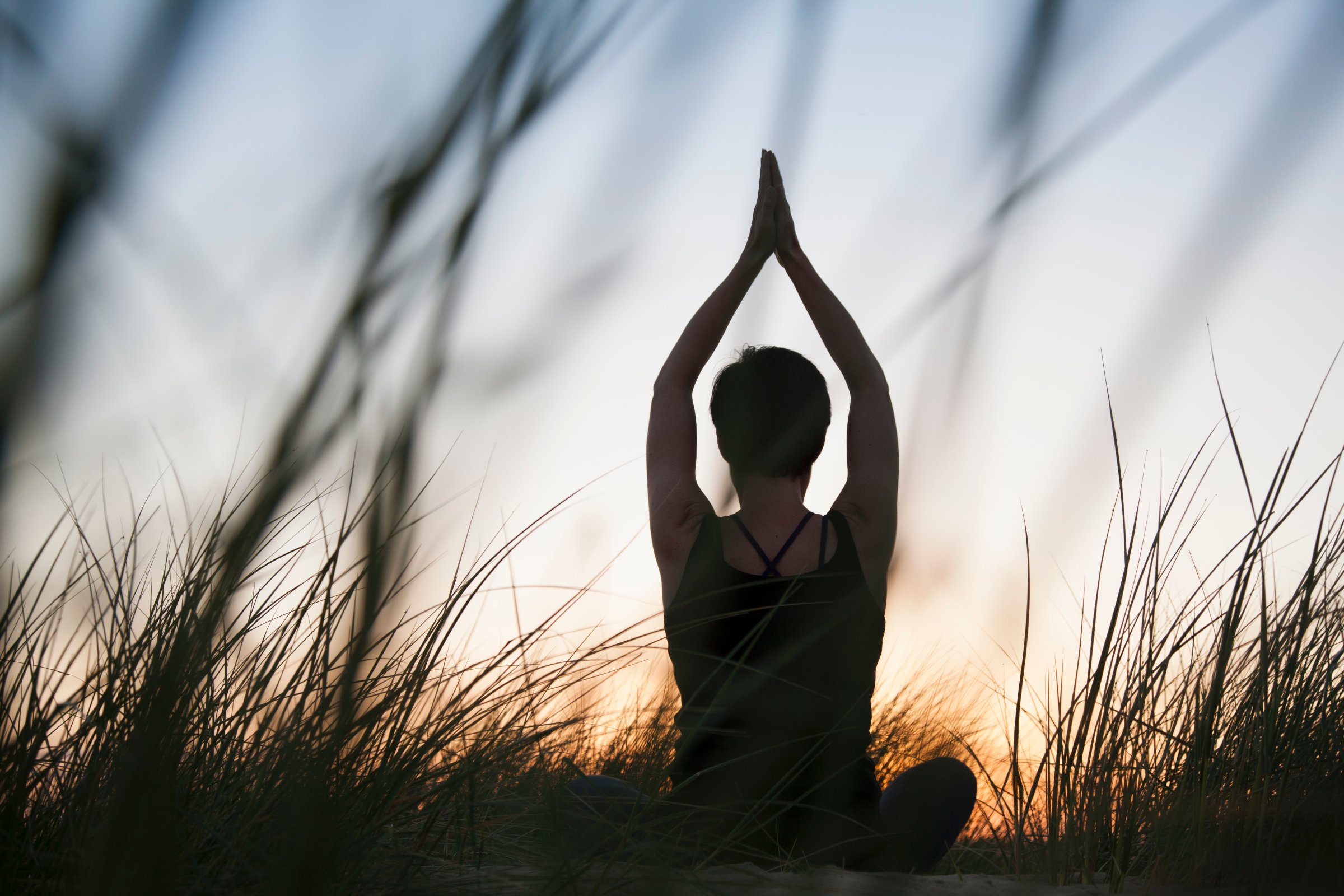
Stress is a modern mental bogeyman, keeping nearly half of Americans up at night, according to a recent survey from the American Psychological Association. Many say they don’t do anything to combat it, yet it takes a toll; stress is linked to a higher risk of heart attack and stroke.
Now, there’s fresh evidence in favor of mindfulness practices—not just sitting cross-legged in meditation—to help ease stress and anxiety. In a new study published in the journal Psychiatry Research, anxious people who took a mindfulness course where they learned several different strategies reacted to stress better and had a lower hormonal and inflammatory response than people who didn’t practice mindfulness.
“There’s been some real skepticism in the medical community about meditation and mindfulness meditation,” says lead author Dr. Elizabeth Hoge, associate professor of psychiatry at Georgetown University Medical Center. She and her team wanted to find out whether people merely felt better after meditating, or if doing so caused real, measurable changes in the body’s markers of stress.
They rounded up healthy adults with generalized anxiety disorder, marked by constant worry about the future. Half of the people in the study went through a mindfulness meditation training course called MBSR, short for mindfulness-based stress reduction. Half completed a stress management education course, with lectures on the importance of diet, exercise, sleep and time management. Both courses lasted eight weeks with an identical amount of class time and homework.
In the MBSR course, people were taught the elements of meditation that have the most scientific evidence behind them for helping stress. They learn to pay attention to the present moment without judgment through exercises like breath awareness, body scan meditations and gentle yoga. Though the practices have roots in Buddhism, MBSR is non-religious; “you don’t have to believe in anything or chant in another language,” Hoge says. The classes met weekly for 2.5 hours.
The real point of the course isn’t to help someone relax in a group environment, however; it’s to steel a person against the ravages of in-the-moment stress, and the researchers tested just that. Before the courses started and right after they concluded, the researchers put the participants through a task that reliably stokes stress a stress response: eight minutes of public speaking, followed by a round of videotaped mental math in front of an audience of people in white lab coats with clipboards.
“The holy grail is to show that patients can do better under stress,” Hoge says.
Not only did the people who learned to meditate report feeling less stressed than people in the other class, but their blood measurements of ACTH, a stress hormone released in the brain and then into the bloodstream, were lower too, as well as markers of inflammation called pro-inflammatory cytokines. But in the control group, people were actually more stressed the second time they did the test, possibly because they knew and anticipated how bad the it would be.
“We have objective measures in the blood that they did better in a provoked situation,” says Hoge. “It really is strong evidence that mindfulness meditation not only makes them feel better, but helps them be more resilient to stress.”
The study adds to growing evidence that MBSR—which is becoming more popular in hospitals and cities across the country—may be a treatment for people with anxiety who don’t want to take medication or go through psychotherapy, Hoge says. But insurance companies don’t typically cover the course, which can cost more than $500.
Hoge says she hopes insurance companies take note of the growing evidence that supports MBSR as a treatment option. “To me, it’s obvious that insurance companies would save money in the long run.”
More Must-Reads from TIME
- Cybersecurity Experts Are Sounding the Alarm on DOGE
- Meet the 2025 Women of the Year
- The Harsh Truth About Disability Inclusion
- Why Do More Young Adults Have Cancer?
- Colman Domingo Leads With Radical Love
- How to Get Better at Doing Things Alone
- Michelle Zauner Stares Down the Darkness
Write to Mandy Oaklander at mandy.oaklander@time.com